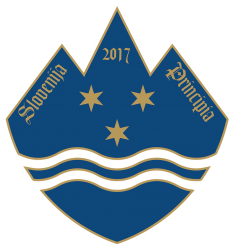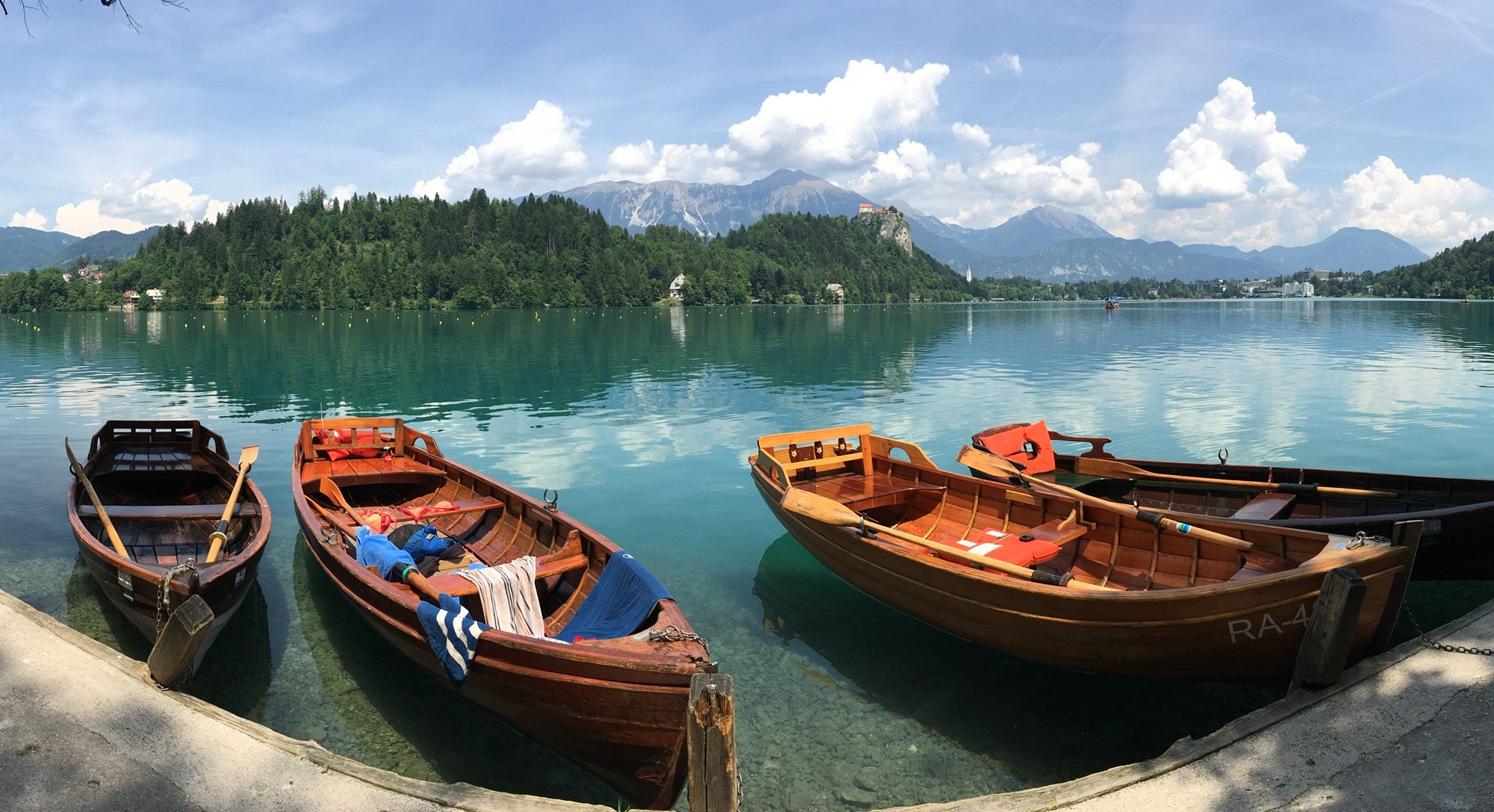I’m currently sitting in a Starbucks in Denver, Colorado, trying to pretend that my sugar-laden drink is anything close to the deliciously flavorful cappuccinos I consumed daily while in Slovenia. The atmosphere is sorely lacking without the quiet energy of the city-streets, with no bicyclists or accordion players in sight. To put it simply— it just isn’t the same.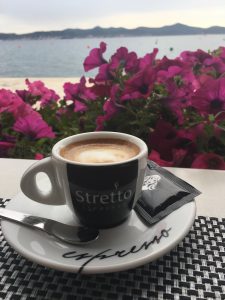
Before seeing the abroad application posters last fall, I didn’t even know Slovenia was a place on this planet. I had no concept of the unique role that literature and language play in its culture, no way of knowing its ever-shifting place in history, no understanding of the wild adventures that we would soon embark upon in-country.
Our very first day in Ljubljana was a mixture of wonder and disorientation. As much as the beautiful city excited me, I felt fearful of the newness of the language and busy atmosphere. I was terrified to even attempt conversation in Slovene, and was content to stay inside without exploring on my own.
Here is where experiential education swooped in to push me out of my comfort zone and forced me to expand my horizons.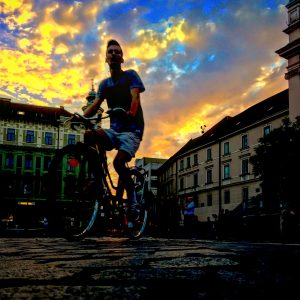
After two mandatory exploration days (fondly referred to as “Ljubljana Is Your Teacher” days where we picked destinations around the city in search of new information and the best cuisine) and many days traveling around as a group to visit speakers and new sights, we began referring to Ljubljana as home. And it’s true! It felt like home. I began to order food in Slovene and even had short conversations with servers and shopkeepers. I spent many hours wandering the narrow streets without fear of getting lost because everything began to feel familiar.
This progression only continued as we made our way through the Croatian cities of Zagreb, Zadar, and Rab, and in the smaller Slovenian towns of Celje, Bled, Bovec, and Piran. 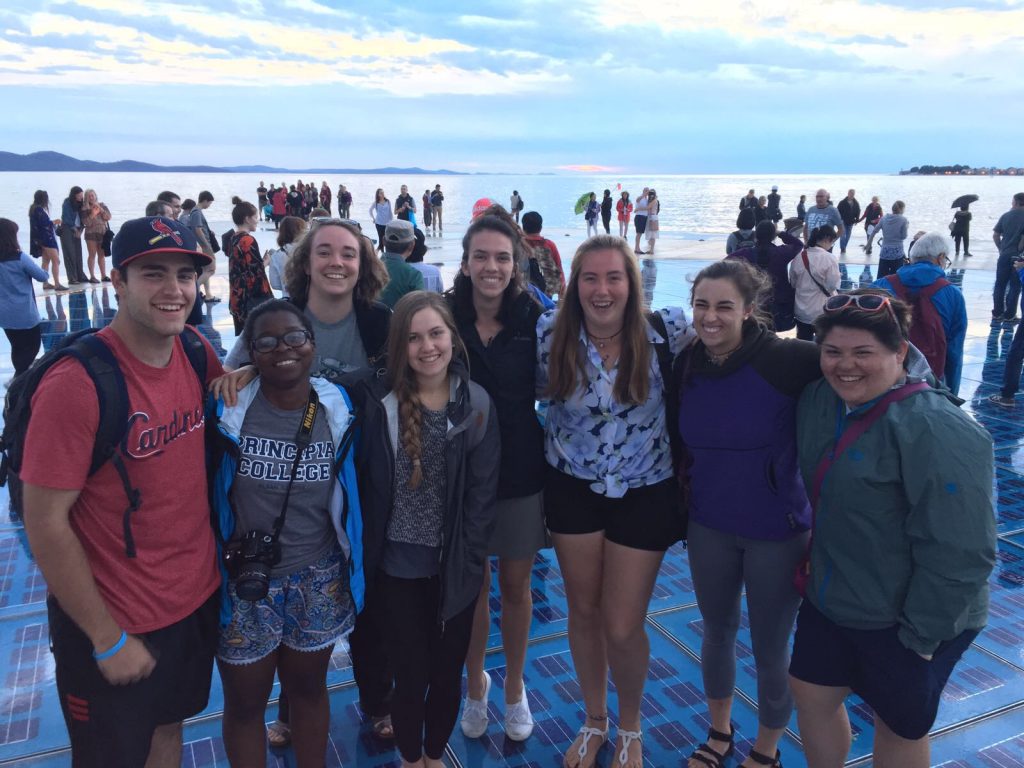 As a group, we learned to ask the right questions to find the lesser-known treasures in each place that we visited. We navigated local markets, fought over who found the most delicious (and best priced) gelato, and talked to locals to learn about how much they loved their corner of the world. While our class in the spring gave us a background understanding of Slovenia and its culture, it was only through our in-country explorations that we developed a true understanding of what it means to be Slovenian.
As a group, we learned to ask the right questions to find the lesser-known treasures in each place that we visited. We navigated local markets, fought over who found the most delicious (and best priced) gelato, and talked to locals to learn about how much they loved their corner of the world. While our class in the spring gave us a background understanding of Slovenia and its culture, it was only through our in-country explorations that we developed a true understanding of what it means to be Slovenian.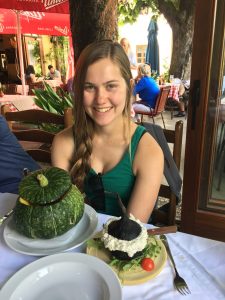
The concept of what it means to be a “global citizen” is something that we discussed leading up to the abroad. In order to better understand this idea, we developed our own working definition of global citizenship. As of February 2, 2017, Global Citizenship (to us) meant this:
“Taking responsibility to value and work towards justice through selflessness and love. A global citizen understands interconnectedness by embracing diversity.”
As Principians, we wanted our definition to represent principle, integrity, humility, cultural awareness, and love. We made it our mission to demonstrate global citizenship throughout our abroad experience—and in reflecting on the trip, I am certain that we succeeded in doing so.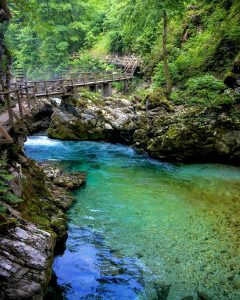
As the abroad comes to an end, I can now say with confidence that I know Slovenia. When I say this, it is in recognition that what I know now is still only a small glimpse of its story. I have interacted with some of its most beloved authors, tasted its traditional cuisine, hiked through its mountains, marveled at its lakes and gorges, relaxed on its beaches, and wandered its winding city streets. I have studied Slovenia’s history, dipped my toes into its world of translation and publishing, discovered the importance of tradition, and seen the intermingling of languages and cultures unique to the former Yugoslav region. Through this experience, I have become a better global citizen. What more could I have asked for?
~Brooke
Brooke Engel is a sophomore at Principia double majoring in studio art and creative writing, with a minor in mass communication. Her Slovenian cultural research centered on Mt. Triglav National Park and Slovenes’ general love for the outdoors.

